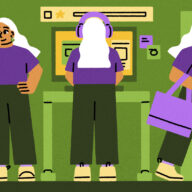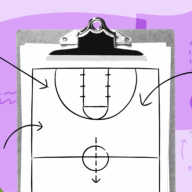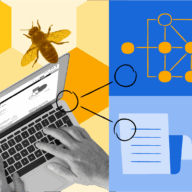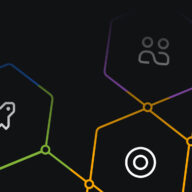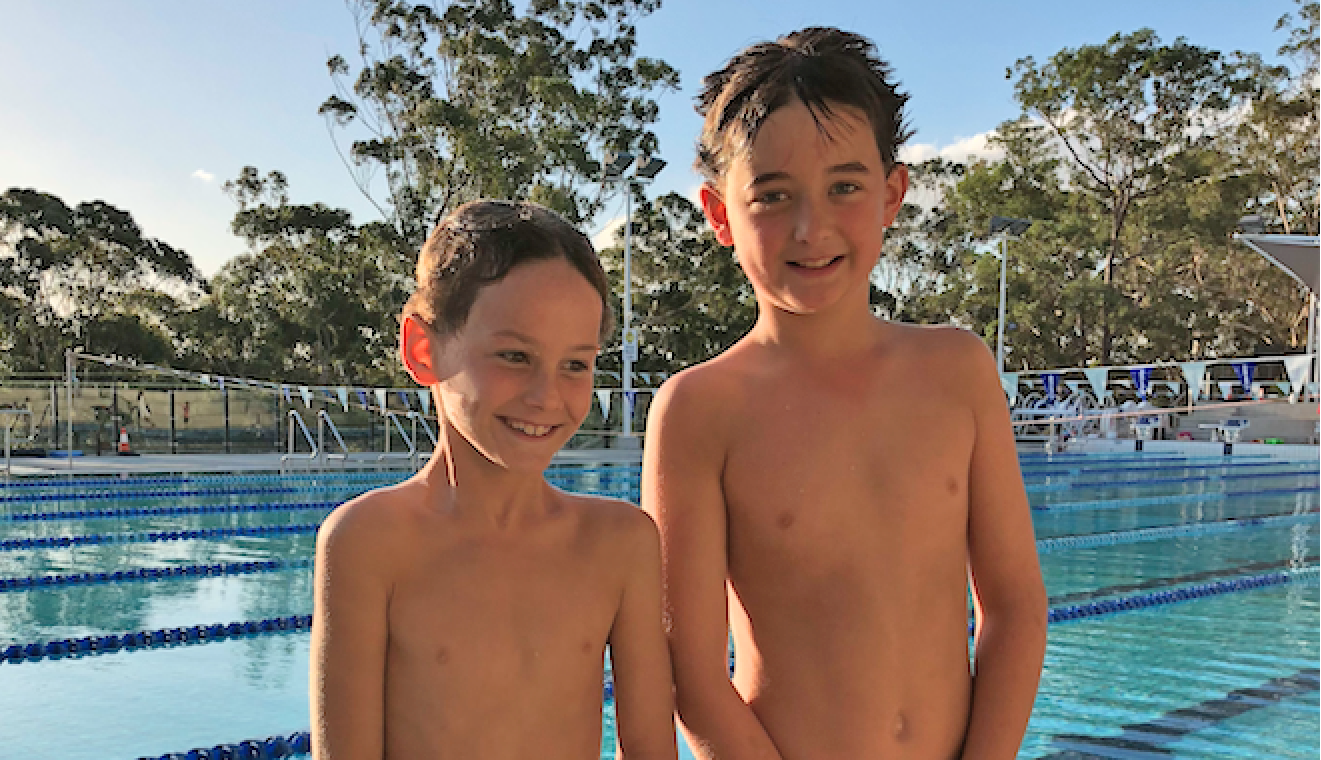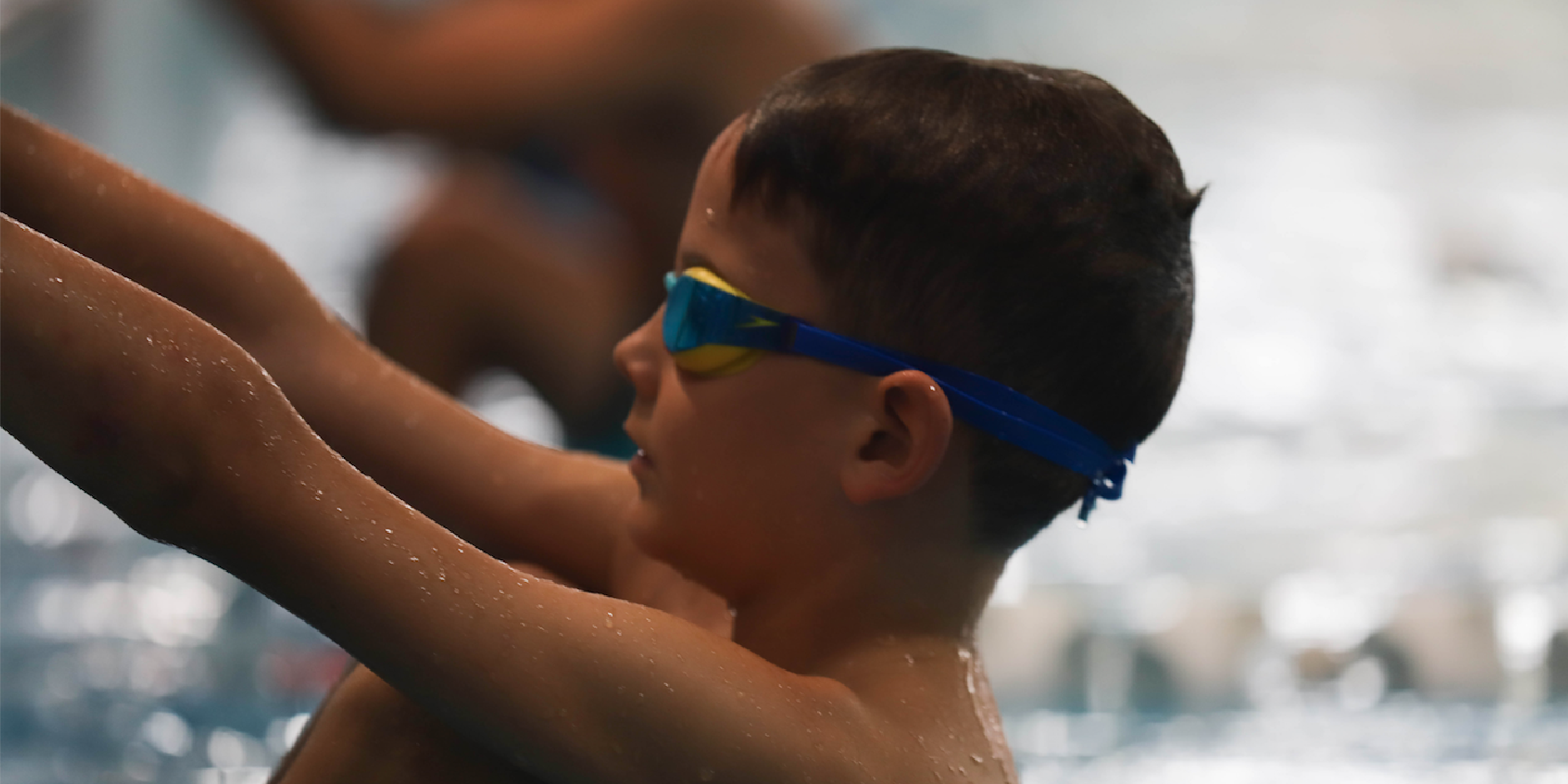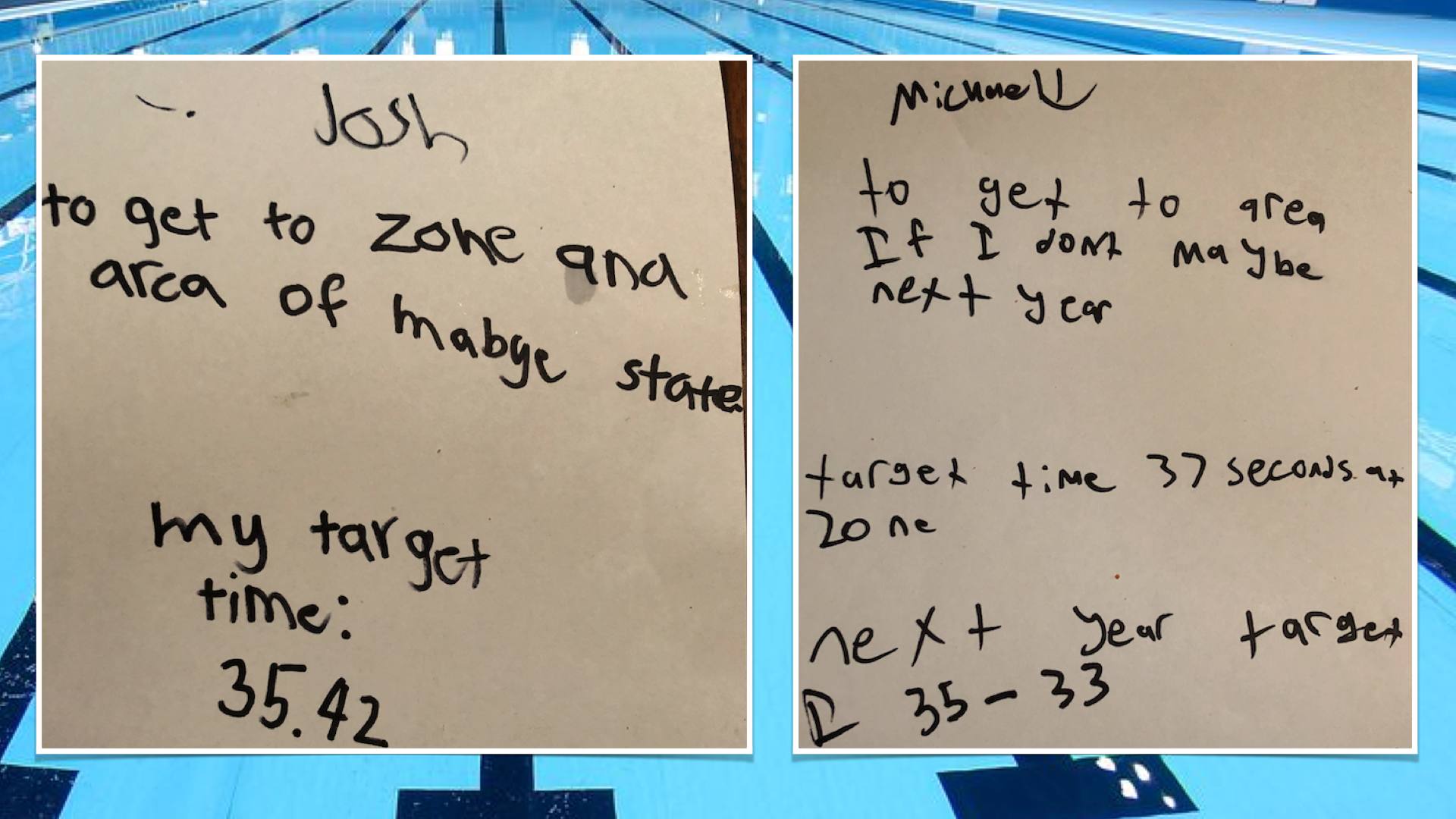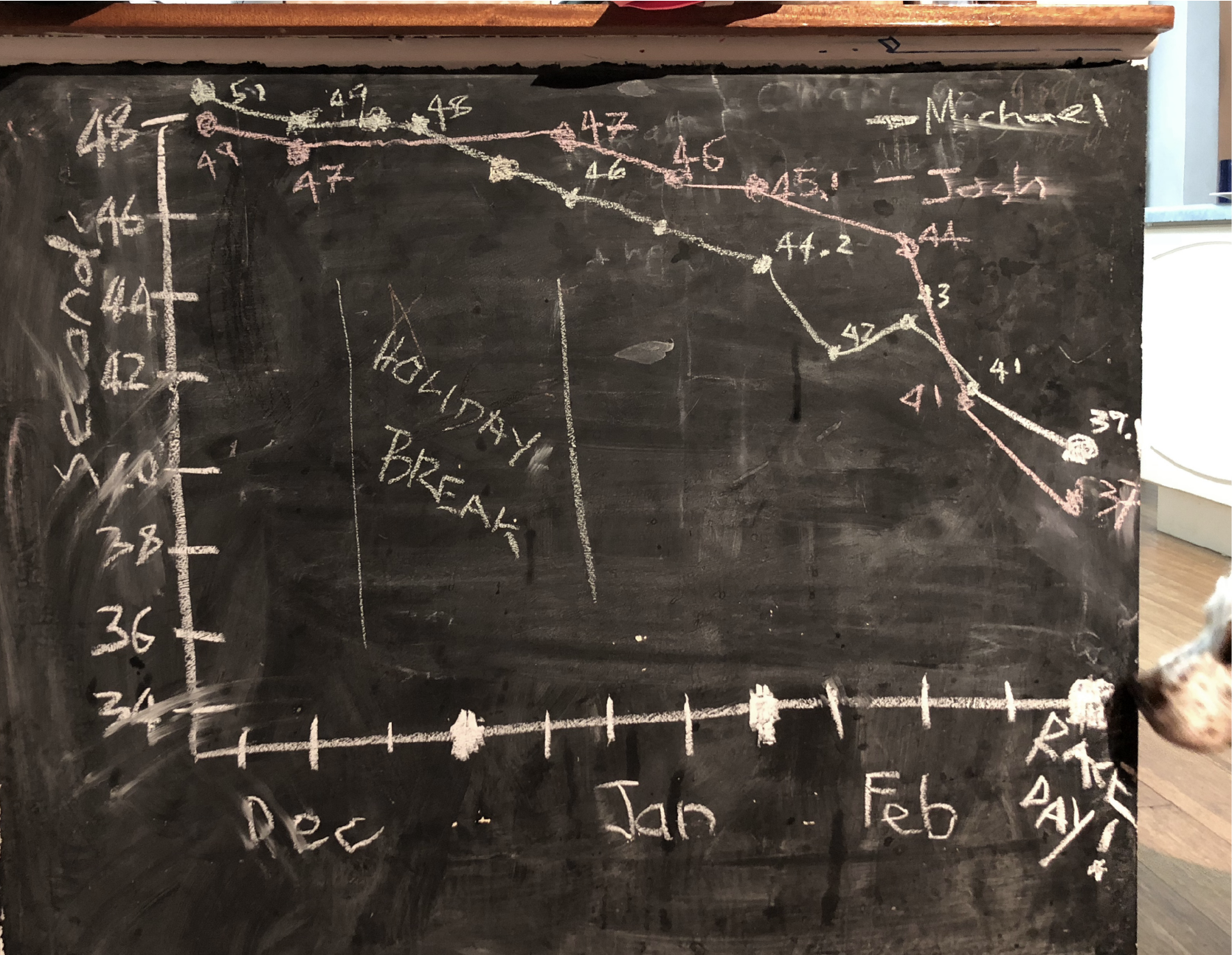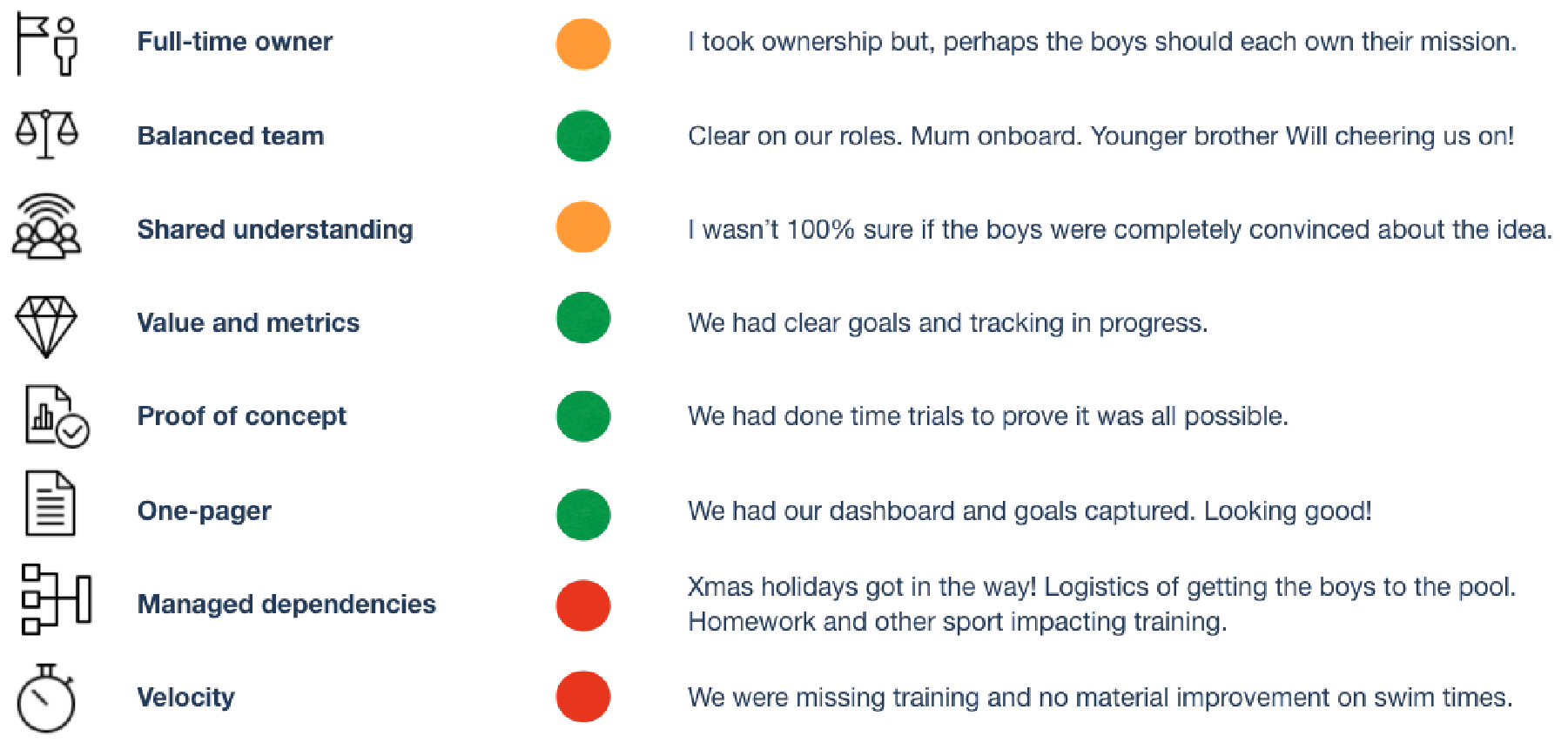I swam my kids like an Atlassian team
It’s been a year since my experiment running my kids like an Atlassian team. Could this work for their swim team, too?
It’s been about a year since I ran my kids like an Atlassian team as an experiment while my wife was away on business for a month. Their nervous tics have mostly subsided and they’ve stopped hiding when I walk into the room with sticky notes.
It was time, therefore, to test a number of hypotheses I’d been mulling over for a while.
The school swimming carnival (swim meet if you speak American) was fast approaching and I was interested to see whether Atlassian team practices are compatible in the sporting arena. I also believe that sport develops skills and characteristics that are invaluable later in life: teamwork, hard work, winning with humility, losing with dignity.
With my deep love for sport, a tendency to geek out on the Atlassian Team Playbook, and being somewhat competitive, my two older boys were in for a fun ride.
Setting goals (or, going off the deep end)
And so, armed with my trusty whiteboard and marker, I sat the boys down and posed the question: What are your goals for the upcoming swimming carnival? Needless to say there was much groaning, rolling of eyes, and a mumbled “Not this stuff again, Dad…”
Sensing some hesitancy, I improvised a quick OKRs play and re-stated the question in a more human way. Imagine it’s the end of the swimming season, what are you most proud of achieving and how would you explain it to Gran & Gramps? Lightbulbs went off, pennies dropped, and the boys started writing.
We got a bit stuck with setting realistic goals, but after years of estimating projects with software teams, I had a few tricks up my sleeve. We looked at previous times the boys had posted and checked out school records for their age groups, then picked something that we felt was achievable yet still a stretch.
A sporting chance
With the fervent hope that my boys’ swimming was better than their handwriting, we moved into the next stage of the experiment. I asked the boys how often they thought they needed to train in order to hit their goals. A somewhat awkward planning discussion ensued. We eventually settled on a number, then hit the pool to set some baseline times.
Atlassian teams are pretty good at using data to visualise and track their work. By making progress visible (and fun), you are more likely to build engagement and a culture of performance. So, stealing yet another page, we put together a simple ChalkDashBoard™. All eyes were on Race Day at the end of February.
The importance of staying healthy
By mid-January things were looking a bit dire. Swim times were stagnant. The team felt apathetic. In short, it was getting harder to motivate the boys to hit the pool.
I can’t claim that I ran an actual Team Health Monitor but I like to think my diagnostic followed a similar pattern.
Using our data dashboard and a crude version of the “5 whys” analysis technique, we established a somewhat tenuous link between effort and performance. Then we agreed on some changes: specific training days, and a recommitment to our goals.
My sons also convinced me that, by purchasing a GoPro, I could better analyse their technique and thus improve swim times. I didn’t put up much of a fight on this one.
[vimeo 274126794 w=640 h=360]
Play, as a team
With a fresh outlook, a better plan, and a new GoPro, we hit the pool with enthusiasm. After a couple of weeks, times started to improve. The team vibe picked up and soon I had the boys telling me we had to go to the pool more often. Success breeds success. Every. Time.
We also joined the local swim club and together competed in Friday evening demos races. It’s one thing training together in the pool, but quite another for the kids to watch their parents actually competing in races. Importantly, more fun had been injected into our team rituals.
Beyond the finish line (a random assortment of thought bubbles)
The Atlassian Team Playbook extends way beyond the world of building software products. Our principles and practices have an uncanny ability to simultaneously inject fun and effectiveness into any team mission. Even sports teams.
Atlassian recently conducted research to examine the link between playing sport and developing confidence later in life – specifically, what helps young girls succeed. I hope we double down on this initiative, bringing to bear everything we know about teams, diversity, and getting $#!^ done to make an impact.
And did our little team hit its goals? Hell yeah! We worked hard, we played hard, we won with humility, and lost with our heads held high.
. . .
Turns out, the Atlassian Team Playbook wasn’t developed so Matt could experiment on his kids – although that is an amusing side-effect. Learn how the Team Playbook can help your team (at work, presumably) be more effective. It’s free and open to all teams.












